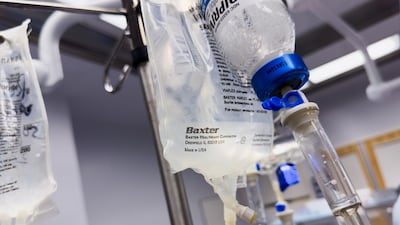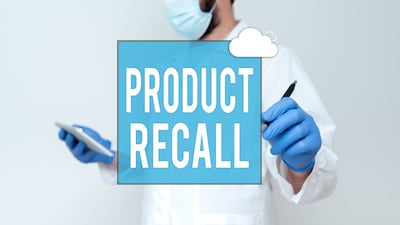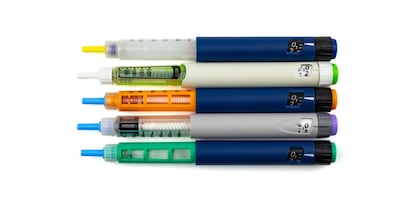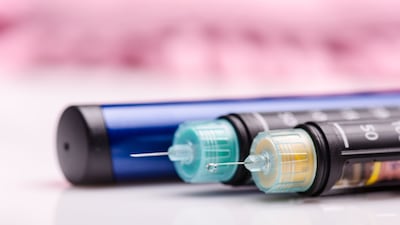Combination Products
Medtech Insight spoke with Rambam Medical Center’s Michael Mimouni, who implanted the first 3D-bioprinted corneal graft in a human patient, about his hopes for Precise Bio’s approach. The patient is part of a Phase I trial evaluating PB-001 in patients with corneal edema.
Roche Diagnostics, Intuitive Surgical, Abbott and Edwards Lifesciences all acknowledge tariff headwinds, but stress preparedness, resilience and mitigation. Below is look at how management framed the impact in Q1 vs Q2 earnings calls.
Combination products are no longer fringe – they are the “new normal,” consultant Stephen O’Rourke told Medtech Insight. The EU has the expertise to handle the regulatory complexity, but only if connects the dots between silos. That’s the challenge, he said, and the opportunity.
The US FDA says Baxter has notified customers about an issue with its Novum IQ Syringe Pump that is linked to two deaths and multiple injuries.
Broad participation by EU member states in a new pilot to test a unified procedure for evaluating applications for combined drug and IVD studies shows they recognize its value, says Monique Al, vice-chair of the Clinical Trials Coordination Group.
The FDA has released draft guidance clarifying UDI rules for drug- and device-led combination products. The document specifies labeling requirements and makes recommendations to reduce confusion between UDIs and NDCs. Comments are being accepted until Sept. 24.
As the EU tests the feasibility of a radical “all-in-one” procedure for combined drug and IVD studies, sponsors are being urged to approach this novel framework with flexibility and openness.
The US FDA has issued an early alert to notify consumers about serious risks associated with a recall from Medtronic and its subsidiary Given Imaging. The alert concerns delivery capsules for diagnosing GERD.
The EU is testing a groundbreaking “all-in-one” process for reviewing combined drug and diagnostic trials via a single application for coordinated assessment.
Global investment in consumer healthtech increased by 9% year-over-year in 2024, totaling $4.5bn, with significant interest in mental health solutions, according to Galen Growth. While the first quarter of 2025 saw raised confidence and investments, the Trump administration’s new tariffs and sweeping changes to healthcare have introduced new uncertainties.
The Doctor Patient Forum says the US FDA should regulate a scoring platform from Bamboo Health intended to help clinicians calculate risk for opioid abuse as a medical device to ensure patient safety.
The US FDA has announced seven device safety actions in recent days. The most serious, which relates to a manufacturing defect in Boston Scientific’s Accolade pacemaker, has been linked to 832 injuries and two deaths.
EU regulators have approved a strategy to streamline the submission and approval of studies that involve the simultaneous investigation of a medicinal product, an IVD, and/or a medical device. The strategy involves rolling out seven cross-sector projects over the next few years.
This week, a medical group sued the FDA to block a lab-developed test rule; the FDA published guidance on device classifications; Defibtec issued a recall of its chest compression device and ICU Medical updated instructions for its infusion pump batteries; Maui Imaging raised a $4m DOD grant to put imaging tech into military-based trauma units.
The US FDA has published draft guidance for predetermined change control plans for medical devices along with recommendations for sponsors including them in marketing submissions to the agency.
The document explains how user fees for combination products are assessed and administered, as well as waiver possibilities.
The US Federal Trade Commission wants to clean up the FDA’s Orange Book by purging medical device patents that the commission says should not be in the listing. The FTC argues improper patents in the Orange Book block lower-cost generic equivalents from coming to market. Medtech Insight spoke to attorney Sara Koblitz about the FTC’s delisting push.
The US FDA has published draft guidance for developers of drug delivery devices listing recommendations related to device design outputs essential for establishing and assessing the performance of their products.
Medtech Insight talked to two leaders at the Alzheimer’s Drug Discovery Foundation about current therapies and the role of biomarkers and digital tools to build on recent advancements in the space and accelerate progress to identify the disease early and slow cognitive decline.
Will it be necessary to provide a new medical device notified body opinion when changes are being made to the medicine in an integral drug-device combination product? This is just one of the new topics addressed in an updated Q&A document from the European Medicines Agency.



















